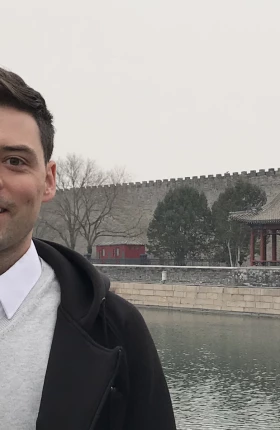Dinesh Khanna served five years as the global chair of BCG’s people team, which works to ensure that employees can thrive both professionally and personally. In that role, he served on the firm’s executive and operating committees. His career has spanned numerous countries, including India, Singapore, the US, and the Netherlands. Dinesh works with both multinational corporations operating in emerging markets and players from emerging markets.
BCG: In your view, how does psychological safety work at BCG?
Dinesh Khanna: For me, psychological safety involves people in teams. Our people work with clients and internal teams on difficult problems—difficult intellectually or difficult from a change management perspective or both. To solve any such problem, you need to come up with an answer that has explored all sides of the argument. If the teams are not able to have open conversations and take risks, to have creative conflict, to share what the frontline workers or middle managers are really feeling, and to bring that to top management, chances are the solution will be suboptimal and likely to fail.
But when we maximize the diversity and breadth of views within teams, we come up with better answers. And we can do that when teams have the feelings of psychological safety that allow them to share their diverse views.
How, in your tenure at BCG, have you seen the role of psychological safety at the firm evolve?
Psychological safety has always been important at BCG—in 1963, when BCG was formed, and in 2002, when I joined. It is a critical foundation for good case-team management. What has changed over time is that we’ve gone from being implicit about it to being explicit about it—trying to ensure better execution and best-practice implementation in all of our teams.
What has BCG done to champion psychological safety?
First, our people explicitly recognize that this is important. We all know that open conversations are one of the basic ingredients of creating a psychologically safe environment. We started observing and codifying all of the things that were going wrong in teams. When we launched Teaming@BCG, we explicitly made psychological safety one of the key pillars of focus. As a result, we have a lot of training on the topic of teaming at BCG. For example, project leaders and principals get together to learn about best practices. Coaches who we make available to our teams have gone from a facilitation role, which is more passive, to truly being coaches, actively inserting themselves with leadership when team dynamics warrant it. And we continually ask for feedback from our teams on how they’re doing and measure progress over time.
Can you tell us more about the coaches?
I like to think of coaches as our black belts. They have the seniority and credibility to share difficult feedback with senior leaders. Sometimes, you need a trusted advisor to say: “Well, sometimes the barrier to psychological safety in this team is the leader in the room.”
It can be very difficult for junior people to call out senior people. The coaches are trained and confident enough to actually pick up the phone and say, “This is what I’ve been observing, and maybe you want to try something in a one-on-one situation.” They’ve moved from just observing or facilitating to actually providing active coaching and measurement.
What if you’re working in a geography or market that tends to be more hierarchical—where it’s less common for people to express issues and talk openly?
Many of us have grown up believing the boss is always right and has all of the answers. In certain markets, like in parts of Asia, it’s very hierarchical. And it’s very difficult for an individual to admit they were wrong. What do you do? You sensitize leaders to it.
It’s okay for the boss to say that they don’t have all of the answers and acknowledge their own vulnerability. It shows that they are self-aware and it opens up opportunities for them to listen to their team’s perspectives and ideas.
I think our biggest superpower at BCG is that we are a decentralized organization, which means everyone can be a free agent and debate and discuss and question. By not having a command-and-control structure, we can be more resilient, and our outcomes are more robust and inclusive.
What do you perceive to be the role of a leader in fostering a culture of psychological safety?
Frankly, the biggest privilege leaders have is that they are more visible. They have a vantage point to express a point of view. The leader’s job is to use that privilege and platform to make a positive contribution rather than a negative one. So the burden of being a role model is higher. You are consistently role modeling psychological safety traits. You can use the podium to talk about it. Write articles. Send emails internally and systematize the ways we work together, as we’ve done with Teaming@BCG.
But for it to really be authentic in any organization, it also has to be consistent with the way you model safety within your immediate circle of daily interactions—because change trickles down.
Read more conversations about psychological safety

Read the Q&A with Ulrike Schwarz-Runer

Read the Q&A with Joe Davis





